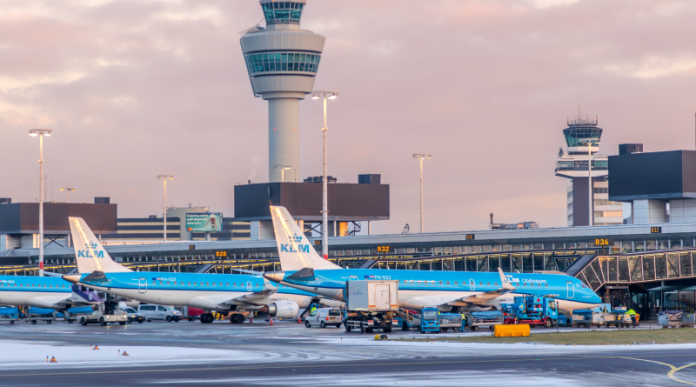Amsterdam’s Schiphol Airport is advancing automation and sustainability efforts. To achieve this, it is deploying autonomous baggage handling technology. In collaboration with KLM and Aurrigo International plc, Schiphol is testing the Auto-DollyTug®, a self-driving electric baggage vehicle designed to optimize baggage separation and streamline airport logistics. With thousands of transfer bags passing through Schiphol each day, the introduction of autonomous solutions aims to relieve pressure on baggage handling systems, enhance efficiency, and support the airport’s vision of a fully connected, emission-free ground operation.
The use of self-driving baggage vehicles aligns with the broader aviation industry’s push for automation, reducing human labor demands while ensuring precise and timely baggage transfers. Schiphol’s ongoing trials will determine how effectively the Auto-DollyTug® can integrate into its existing infrastructure, potentially setting a precedent for airports worldwide.
Current baggage handling challenges
Schiphol Airport handles approximately 31,000 pieces of transfer baggage daily, with peak activity concentrated in the morning hours. This high volume places immense pressure on baggage processing systems, often leading to bottlenecks that can affect efficiency and timely connections. Ensuring that bags with long layovers are correctly separated and securely stored for later flights is a logistical challenge that requires continuous monitoring and optimization.
Traditional baggage transportation methods rely heavily on human-operated vehicles and manual processes, which can lead to inefficiencies, delays, and increased operational costs. With global air travel expected to continue growing, airports must adopt innovative solutions to manage baggage streams effectively while minimizing environmental impact.
The Auto-DollyTug®: Features and capabilities
The Auto-DollyTug® is an all-electric, self-driving baggage transport vehicle designed by Aurrigo International plc. This cutting-edge vehicle is equipped with LiDAR sensors and 360-degree cameras, enabling it to navigate safely through complex airport environments. Unlike traditional baggage carts, the Auto-DollyTug® can autonomously pick up, transport, and deliver baggage to designated storage areas and processing points.
The vehicle operates with a high degree of precision, automatically adjusting to traffic conditions and maintaining safe distances from other airport vehicles and personnel. Its electric-powered system contributes to Schiphol’s broader sustainability goals, reducing reliance on fossil-fuel-powered ground support equipment. Additionally, its autonomous functions help optimize baggage flows, ensuring that transfer luggage reaches its next flight on time while minimizing human intervention.
Trial phases and progress
Schiphol’s first phase of testing for the Auto-DollyTug® began in August last year. Initial trials focused on transporting baggage from temporary storage locations to secure holding areas, with the vehicle mapping the airport’s platform environment using advanced 3D cameras. As the trials progressed, the Auto-DollyTug® demonstrated its ability to autonomously navigate the complex airside environment, successfully picking up and dropping off baggage containers.
Currently, the vehicle is undergoing further testing on the airport’s pier, an area with increased traffic density and operational challenges. If these trials prove successful, Schiphol plans to expand the vehicle’s operational routes, eventually incorporating aircraft stand operations by the end of 2025. Throughout the trials, a human operator remains present in the vehicle to intervene if necessary, ensuring safety and compliance with aviation regulations.
Industry leaders recognize the potential of autonomous technology in transforming baggage handling and ground operations. Jan Zekveld, Senior Manager of Innovation at Royal Schiphol Group, highlights the importance of automation in achieving a sustainable airport environment, stating that the integration of emission-free autonomous vehicles is a critical step toward Schiphol’s long-term goals.
Similarly, Professor David Keene, CEO of Aurrigo International plc, emphasizes the benefits of self-driving baggage solutions in reducing operational pressures. “Working with forward-thinking partners like Schiphol and KLM to bring autonomous solutions to real-world aviation challenges is very exciting,” he noted. “The work we are doing demonstrates a fantastic use case for our self-driving Auto-DollyTug®, showcasing how automation can enhance efficiency while supporting the workload for baggage handlers and easing pressure on airport systems.”
As the trials progress, Schiphol’s success in integrating autonomous baggage handling vehicles could inspire other airports to follow suit.



